More Posts
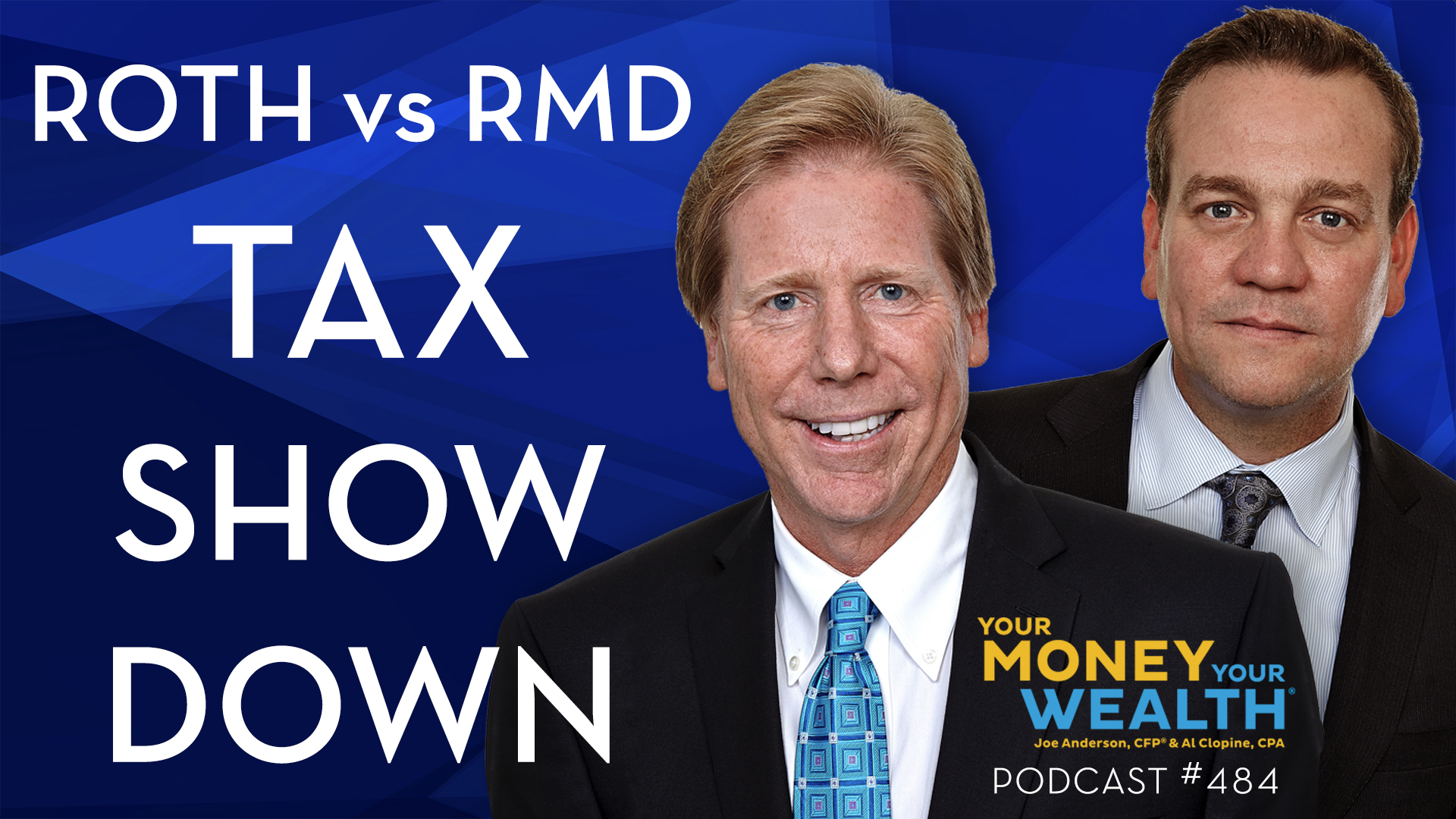
Should Mike in Virginia keep using his IRA money to pay the tax on his Roth conversions? How do you do a Roth conversion when you don’t have the money to pay the tax? That’s PeterLemonJello’s question, but is it the question he should be asking? Spitballing Roth IRA conversion strategies to reduce your taxable required minimum distributions (RMD) in retirement, today on Your Money, Your Wealth® podcast 484. Plus, Susan and Mike in Ohio are retired, in the 24% tax bracket, and considering converting $50k or $75k to Roth – should they do it? How is D-Rock and Matilda’s strategy for selling rental properties and doing Roth conversions as they bridge the gap to early retirement? And finally, how do required minimum distributions work on inherited Roth accounts?
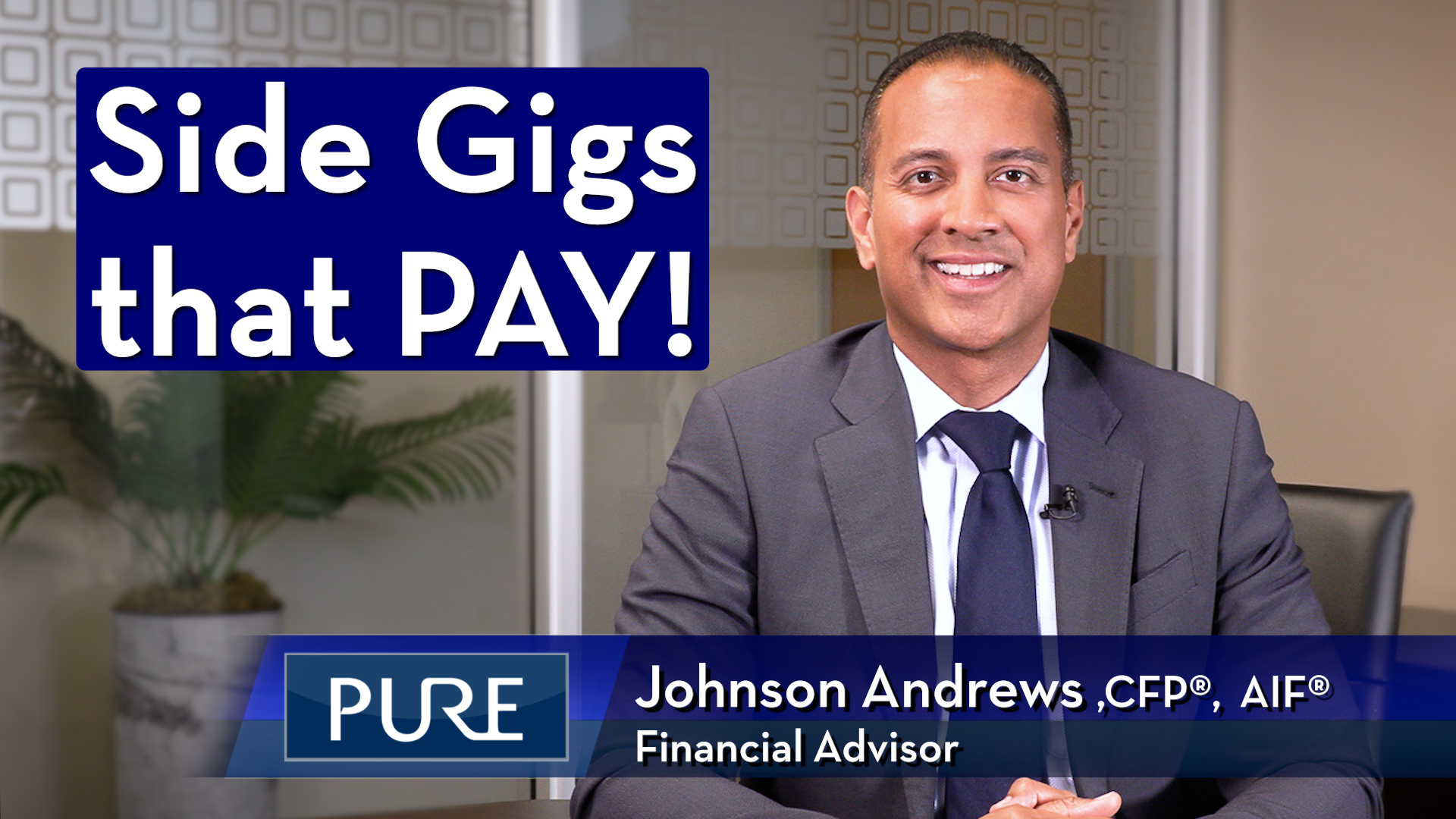
Many people are seeking additional income streams beyond their nine-to-five jobs. Alternative sources of income can help you earn extra money, pursue a passion, or even start a new business. Pure’s Financial Advisor, Johnson Andrews, CFP®, AIF®, explores various side gig options to find what best fits your interests, budget, and available time. FREE GUIDE […]
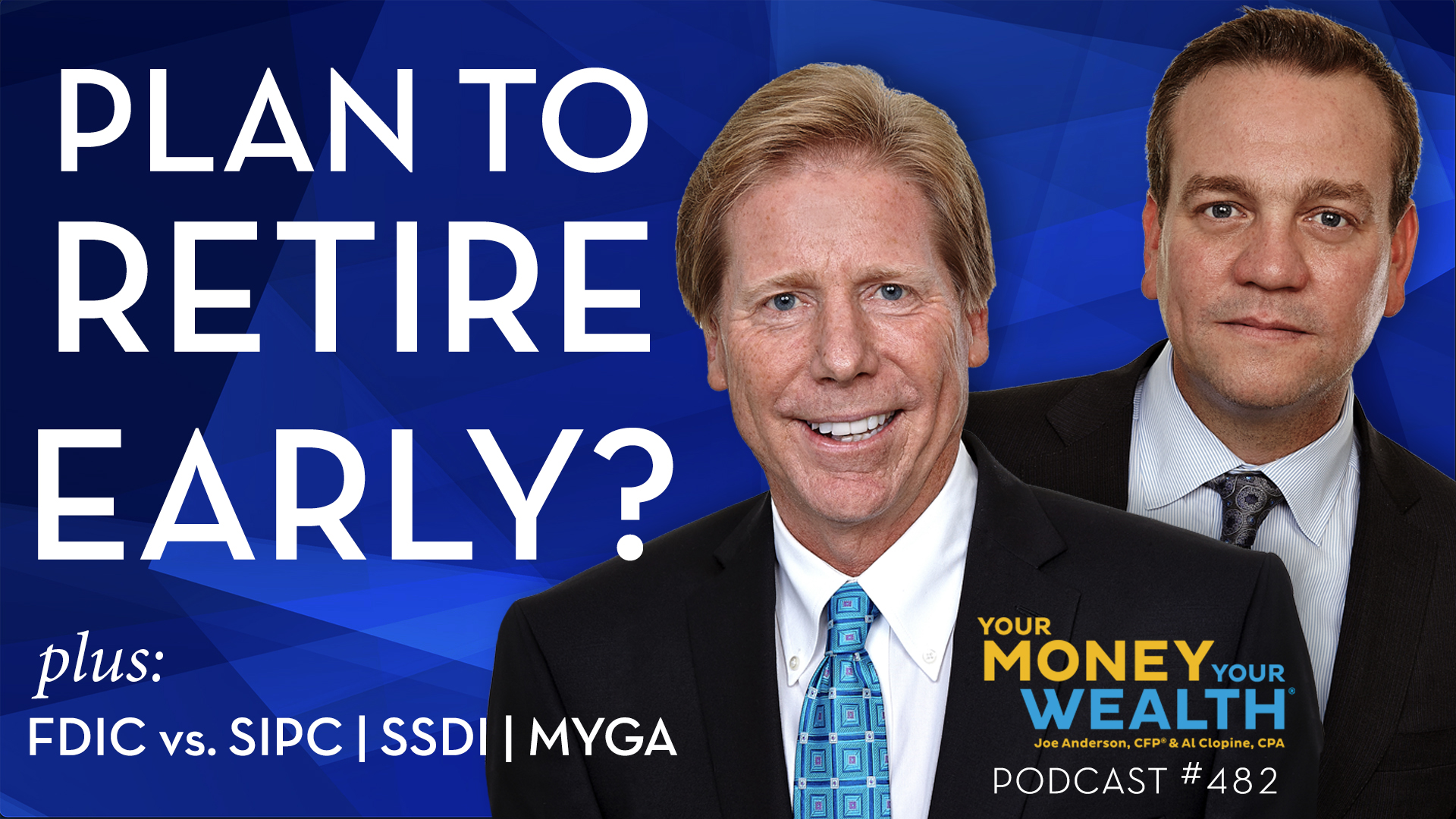
Will building a new home delay Janelle’s early retirement? Can Mike and his wife retire early at ages 50 and 55, and how much should they convert to Roth? Maria and her partner keep their finances separate – can Maria cover her own expenses in early retirement? Plus, Joe and Big Al explain the difference between FDIC insurance and SIPC insurance for Edward, who wonders if he should spread his assets between banks for protection. Fajita Willy needs a spitball on his MYGA (multi-year guaranteed annuities) retirement strategy. Nancy wants to know if mandatory seismic retrofit expenses are tax-deductible. And how should Lee manage Roth contributions and IRMAA now that his Social Security disability has finally been approved and he’s received 5 years of back pay?
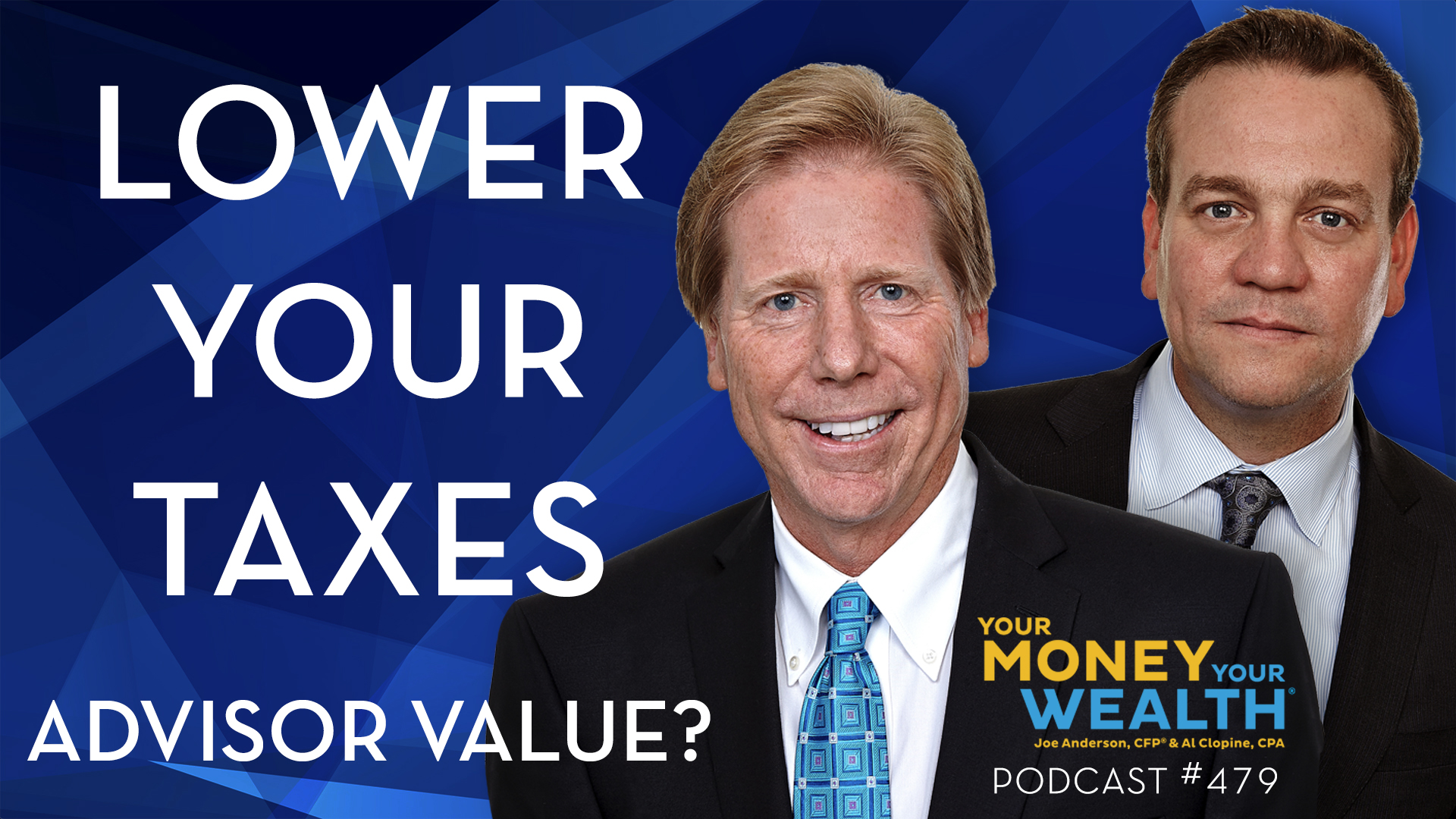
Linda is retired and financially independent. Her advisor suggests she have a separately managed account, specifically for tax loss harvesting. Joe and Big Al spitball on how to save as much tax as possible on retirement withdrawals. Plus, Brian wants to know if it ever makes sense to put IRA money into a brokerage account, rather than doing Roth conversions, so the fellas explain the benefits of tax gain harvesting. Also, why is Robert and Jane’s financial advisor constantly trading in Jane’s professionally managed account? Pete wants to know if flat-fee financial advisors are worth their fee, and Daniel needs financial guidance for his 34-year-old daughter. He’s also considering a free assessment, but he doesn’t really know what he’s getting himself into, so Joe and Al explain.
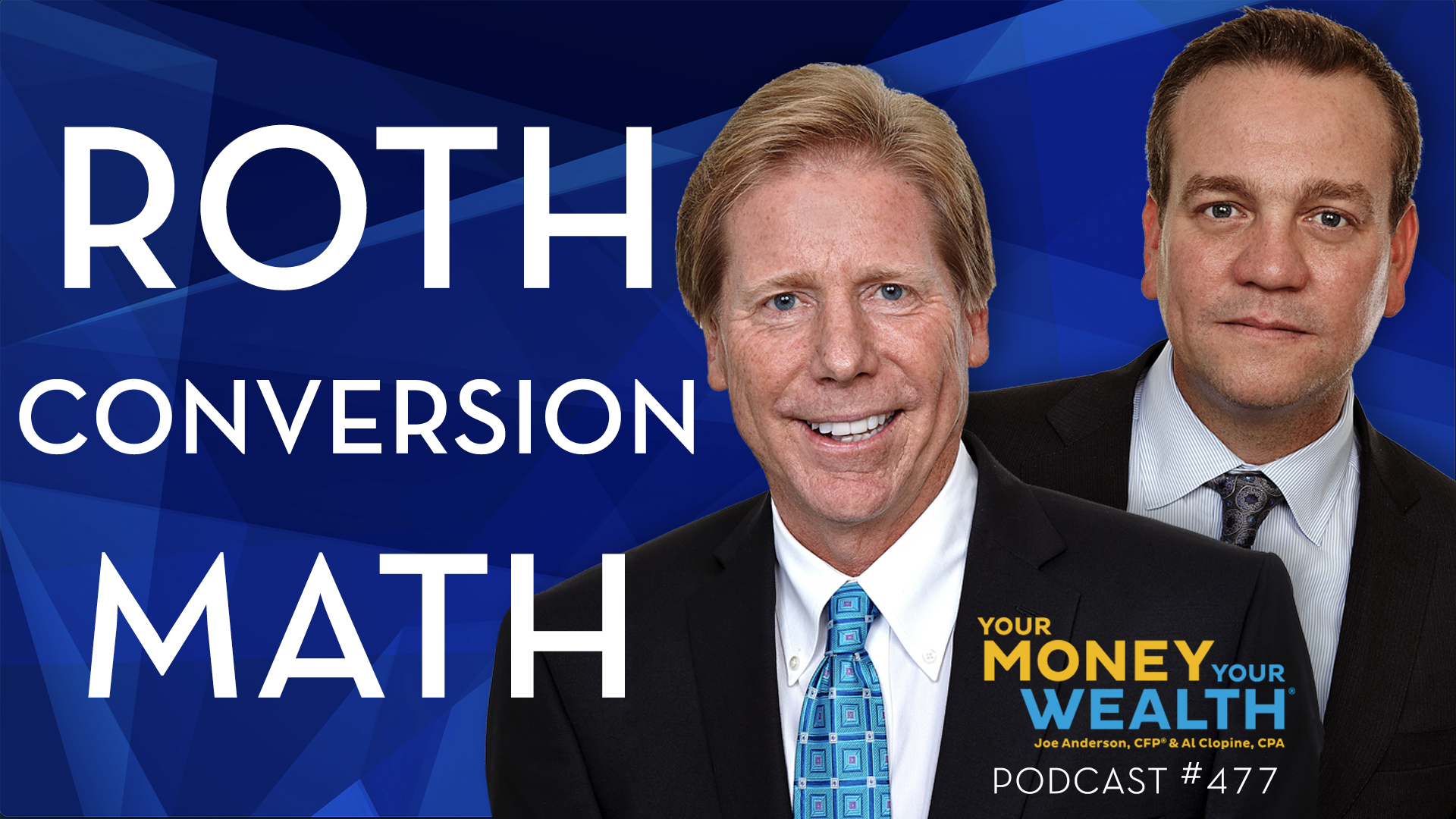
Are there ever times when going all Roth isn’t the best strategy for your retirement savings? How do you determine the break-even point on doing Roth conversions? Joe and Big Al spitball on marginal vs. effective tax rates for Joseph Allen, saving to after-tax brokerage or pre-tax 403(b) for Gigi in Illinois, the arithmetic of Roth conversions for Carl Spackler in Florida, and the mega backdoor Roth for Jefe in Texas. For something completely different, we’ll wrap it up with a discussion of tax forms that need to be filed for your solo 401(k) depending on the account balance, for Smitty in The Villages.

Restricted Stock Units (RSUs) have become a popular way to compensate employees for their efforts. RSUs are a type of equity-based compensation in which an employee receives shares of company stock as part of their overall compensation package. However, RSUs typically do not grant the employee ownership of the stock outright until certain conditions are […]
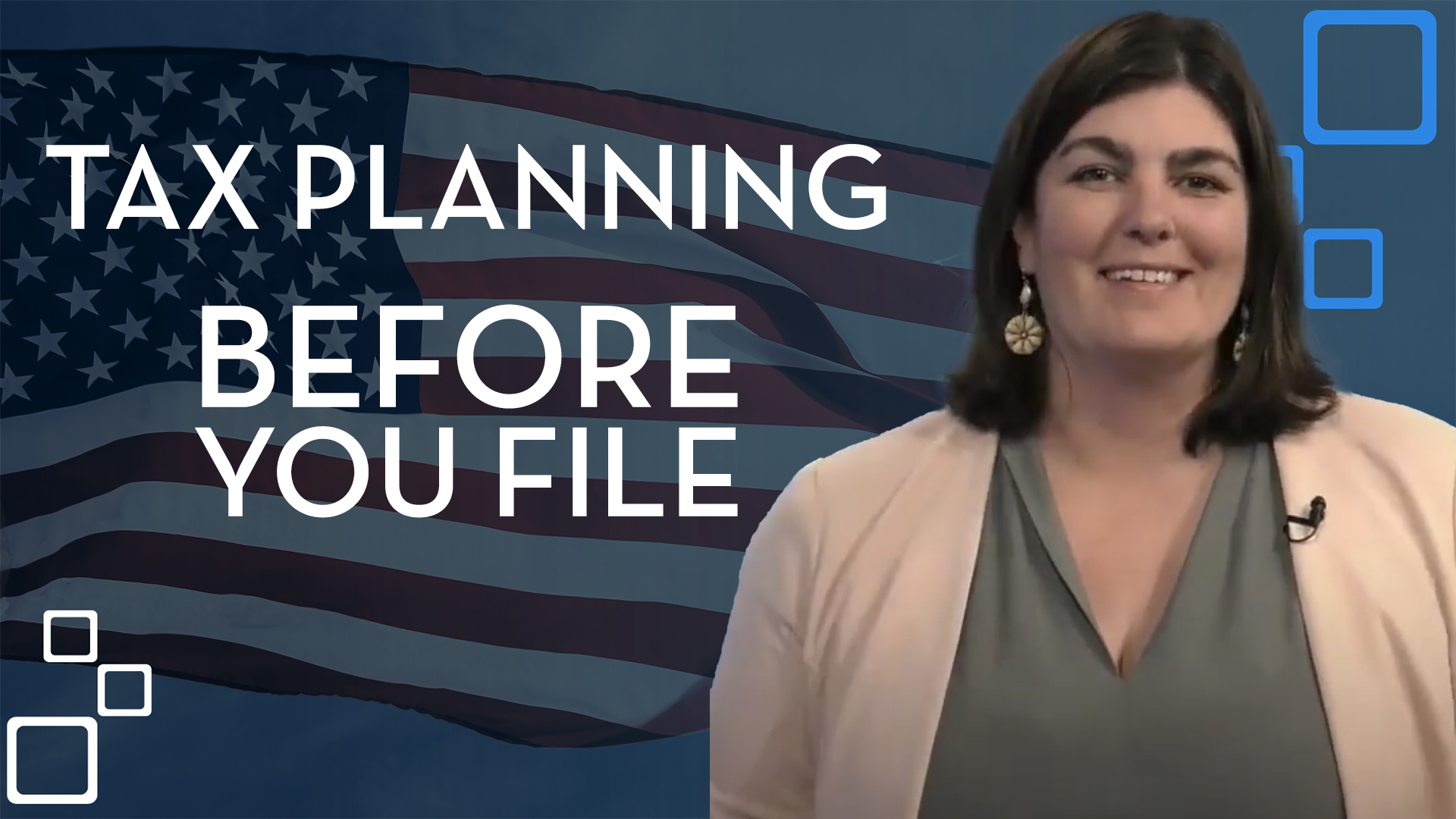
Learn from Pure Financial’s Tax Planning Manager Amanda Cook, CPA, Esq., how Roth conversions, tax loss harvesting, tax gain harvesting, the Backdoor Roth IRA, net unrealized appreciation, and charitable giving strategies such as a donor-advised fund can help you reduce your tax liability, and which of these strategies fit your specific needs and goals. Outline […]
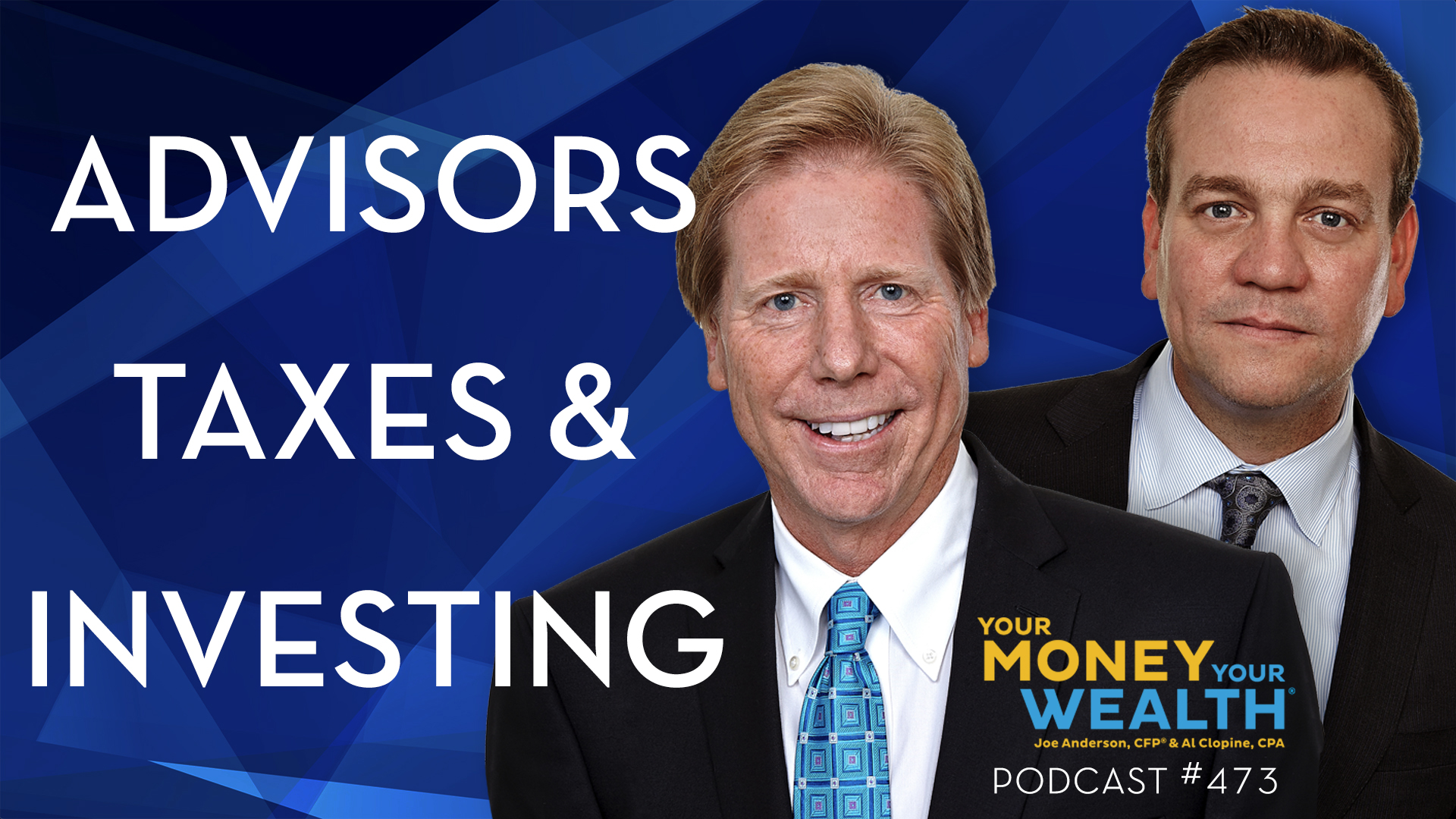
Why would a financial advisor suggest that Frank in Lake Wobegon sell a piece of inherited property, pay 25% tax, and invest the lump sum? Mark in Florida is 72 and invested in CDs. Should he go back to his financial advisor, or just buy more CDs? Plus, Adam in Tennessee will have deferred income in 5 years. Should his asset allocation be more conservative? And in order to retire early at age 55, should Lewis in Arkansas delay starting Roth conversions? But first, if Mike’s wife outlives him, how can he keep her in a similar tax bracket?
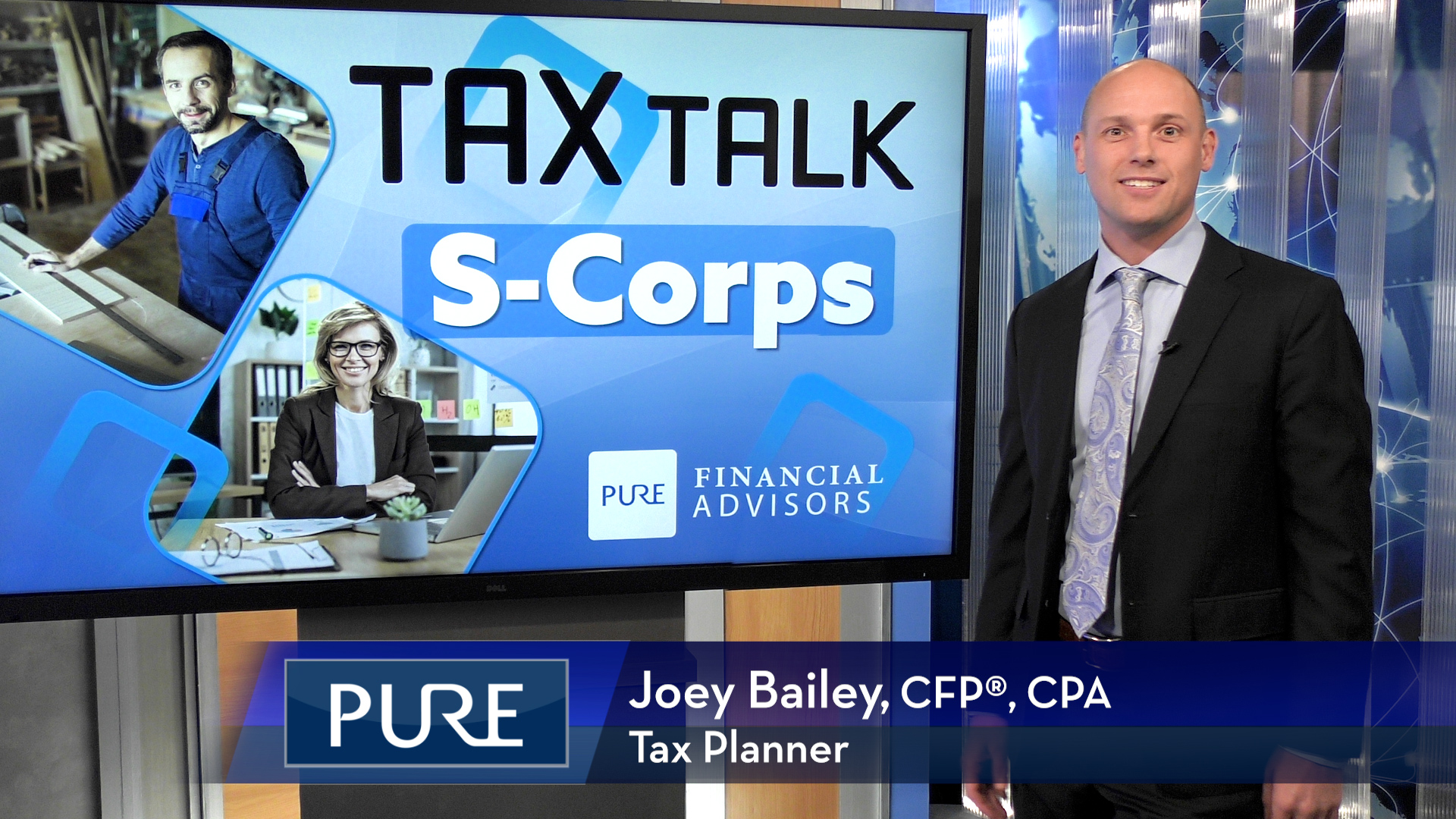
An S corporation, also known as a S subchapter, is one type of legal business structure common among small businesses. For self-employed individuals, the benefits of S Corps lie in their advantageous tax benefits but navigating through regulations can be challenging. To assist in this, Pure’s Tax Planner, Joey Bailey, CFP®, CPA, offers four tips […]

Are you self-employed and feeling confused about tax filing? Too often, small business owners invest more time and energy into building their companies, only to overlook the intricacies of filing their taxes. Discover strategies to efficiently navigate the process and maximize your savings. In this guide, you’ll learn… Selecting a Legal Entity Estimated Payments The […]
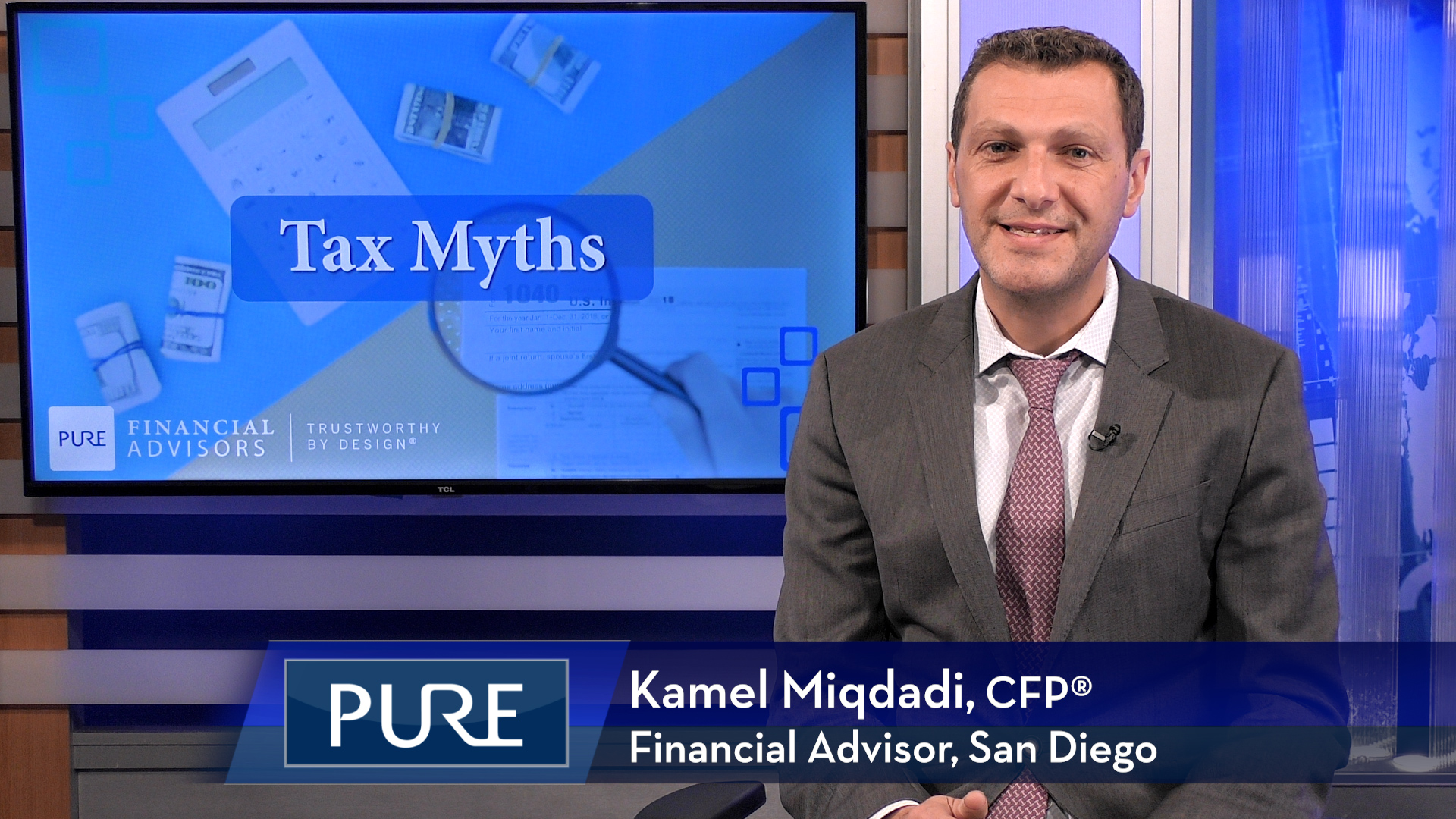
With tax season around the corner, you’re bound to stumble upon misconceptions about tax laws. Pure’s Financial Advisor, Kamel Miqdadi, CFP®, debunks those common myths and help streamline your filing process. FREE GUIDE | 2024 Tax Planning Guide Transcript It’s that time of the year when you start hearing conflicting things from friends, family, and […]

When it comes to taxes, planning ahead is key, it’s a year-round commitment that ties into your retirement vision. Pure’s Financial Advisor, Ryan Miiller, CFP®, AIF®, analyzes the newest tax updates for 2024 and show you how they fit into your personal financial journey. FREE GUIDE | 2024 Tax Planning Guide Transcript For the first […]
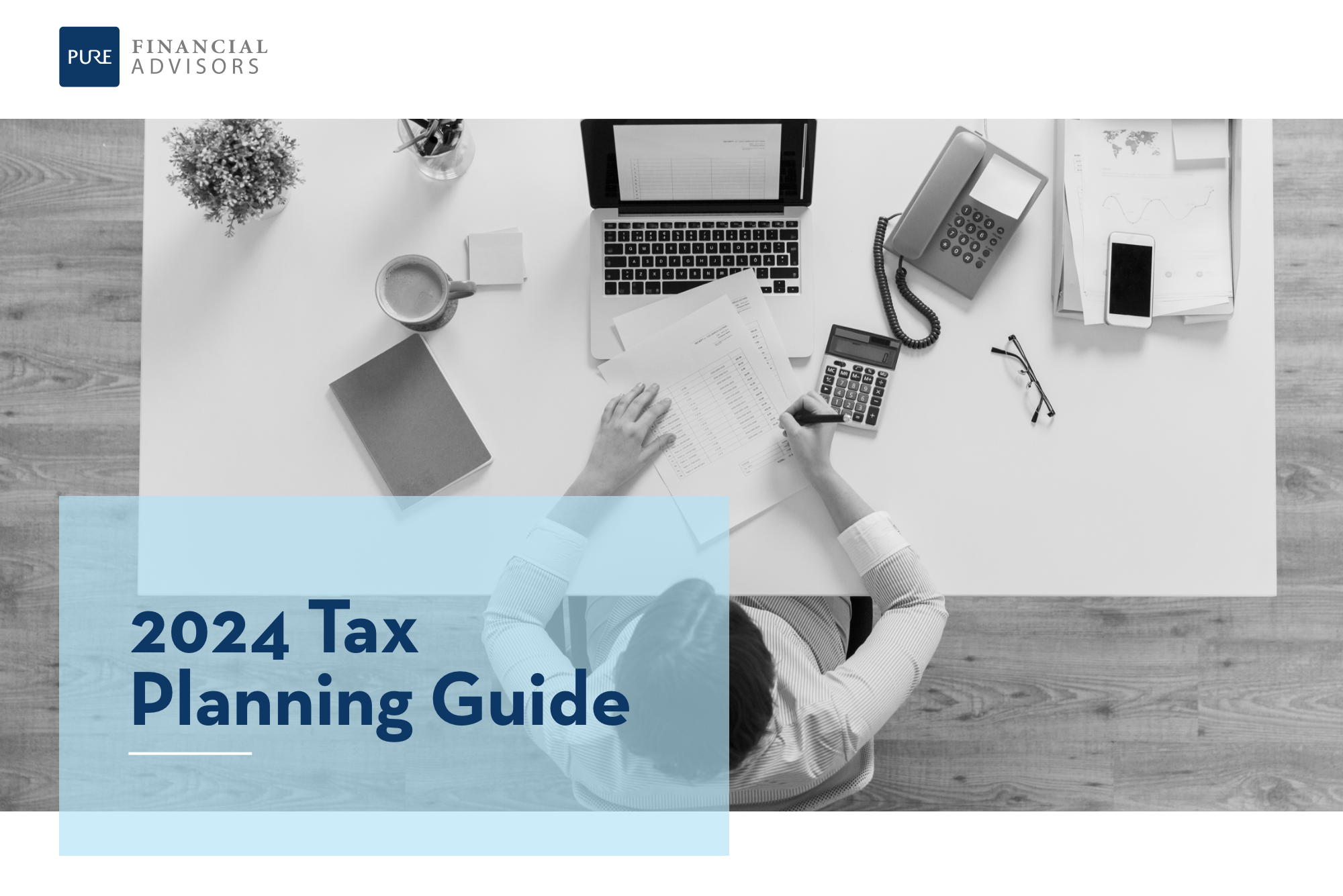
The word “taxes” may not be on the top of everyone’s list of favorite things to address. But, with some forward-looking preparations, managing your taxes does not have to be burdensome with the help of this tax planning guide. In this guide, you’ll learn… Important Tax Deadlines Retirement Account Limits & Roth IRA Income Limits […]





